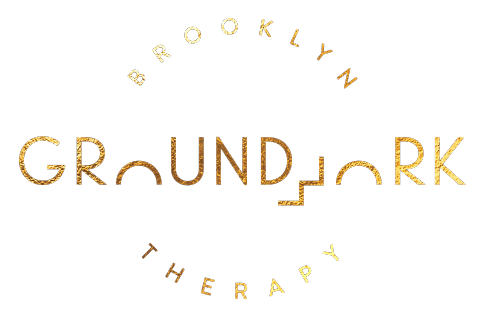Understanding Dysphoria - Types, Signs and Coping
Dysphoria is a feeling of unease or dissatisfaction with life. It is different from depression in that dysphoria does not always involve feelings of sadness or despair. Rather, it is a general feeling of unhappiness or discontent.
A number of different factors can cause dysphoria. One reason may be an underlying mental health condition, such as depression or anxiety. Another possibility is that it can also be caused by physical health problems, such as chronic pain or an illness. Additionally, it may be the result of life circumstances, such as job loss or the passing of a loved one.
Defining dysphoria - what it is and what it isn't
Dysphoria is a feeling of unease or dissatisfaction. In its most basic sense, it can be synonymous with unhappiness. However, dysphoria is more than that; it is a profound, long-lasting sense of existential unease that can disrupt every aspect of a person's life. Unlike fleeting feelings of sadness or anxiety, dysphoria is an enduring emotional state that often leads to high levels of distress and dysfunction. For many people, dysphoria is a debilitating condition that significantly impairs their quality of life. While there is no single cause of dysphoria, it is often associated with major life transitions or trauma. Treatment typically focuses on alleviating the symptoms of dysphoria and helping the individual to cope with their underlying condition.
The different types of dysphoria
Dysphoria in general is not a mental disorder, but it can be a symptom of one. When dysphoria is caused by an underlying mental health condition, it is referred to as diagnosed dysphoria. Common mental health-related conditions include:
Gender dysphoria
Gender dysphoria is a type of dysphoria that is experienced specifically in relation to one's gender identity. Individuals with gender dysphoria may feel that they do not fit into the conventional categories of male and female, or they may feel strongly that they belong to the opposite gender. This can lead to a feeling of disconnection from one's body and discomfort in social situations.
Premenstrual dysphoric disorder
Premenstrual dysphoric disorder (PMDD) is a type of dysphoria that occurs in the days leading up to a woman's period. Women with PMDD may experience various symptoms, including irritability, mood swings, and depressed mood. These symptoms typically resolve once the period begins.
Tardive Dysphoria
Tardive dysphoria is a type of dysphoria that is caused by the use of antipsychotic medication. It is characterized by a range of symptoms, including depressed mood, anxiety, and feelings of emptiness.
Signs that you or someone you know may be experiencing dysphoria
There are many signs of someone experiencing dysphoria, and it is vital to be mindful of these signs in yourself and others. Some common signs of dysphoria include:
unhappiness
anxiousness
depression
irritability
fatigue
apathy
Someone experiencing dysphoria may also lose interest in activities that they used to enjoy, have difficulty concentrating, or experience changes in appetite. If you or someone you know is exhibiting any of these signs, it is imperative that you reach out for help. A doctor or therapist can provide support and resources to help manage dysphoria.
Coping mechanisms for dealing with dysphoria
As anyone who has experienced dysphoria knows, it can be a debilitating condition that can interfere with every aspect of life. However, effective coping mechanisms can help lessen the symptoms and make it easier to manage. One of the most important things is to build a supportive network of family and friends who understand and can offer practical and emotional support. It can also be helpful to connect with others who have similar experiences, either online or in person. In addition, therapy can be an invaluable tool for managing dysphoria, providing a safe space to explore emotions and develop positive coping strategies.
Some additional coping recommendations include:
Exercising: Exercise has been shown to be an effective way to reduce stress and improve mood.
Practicing relaxation techniques: Relaxation techniques such as yoga, meditation, and deep breathing can help to reduce stress and promote feelings of calm.
Getting enough sleep: A lack of sleep can worsen symptoms of anxiety and depression, so it is essential to get enough rest.
Eating a healthy diet: Eating nutritious foods helps to reduce fatigue and promote overall well-being.
When to seek professional help for dysphoria
If you are experiencing any signs of dysphoria, it is important to seek help from a professional who can help you identify the root cause of your distress and develop a plan to address it. Left untreated, dysphoria can lead to depression, anxiety, and even suicidal thoughts. While there is no one-size-fits-all approach to treating dysphoria, many effective methods can help you manage your symptoms and live a full and satisfying life. If you or someone you know is struggling with dysphoria, don't hesitate to reach out for help.
It's possible to live a full and satisfying life despite experiencing dysphoria. With the help of a professional, you can develop coping mechanisms to manage your symptoms and improve your overall well-being.
About Groundwork Therapy
Groundwork Therapy is a team of licensed clinical psychologists and therapists in Brooklyn, NY who provide therapy to individuals, couples, and families. We provide a supportive and confidential environment in which clients can explore their thoughts and feelings without judgment. If you are in located in Brooklyn, NY and are searching for a licensed therapist near me, contact us today!


